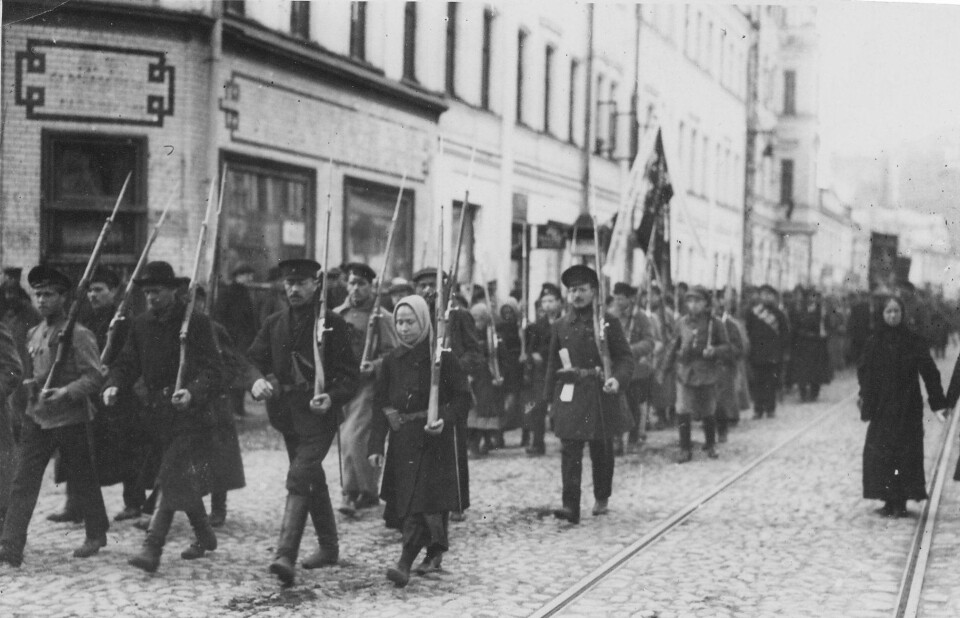
When Russia turned red
100 years after the October Revolution, a new generation of Russians feel ambivalent about its legacy.
— You could barely talk about the October Revolution without keeping the February Revolution in mind, Lars Peder Haga states.
He is an associate professor with a PhD in Soviet history at the Royal Norwegian Air Force Academy. In the winter of 1917, the old czarist regime had grown unpopular due to political and economic mismanagement at home, and because of its participation in an unpopular world war which drained the country of valuable resources. Haga explains that it was during this frst revolution that the public pressure against the Russian Empire had started to mount - a revolution that ended with Czar Nicholas II being replaced by a provisional government.
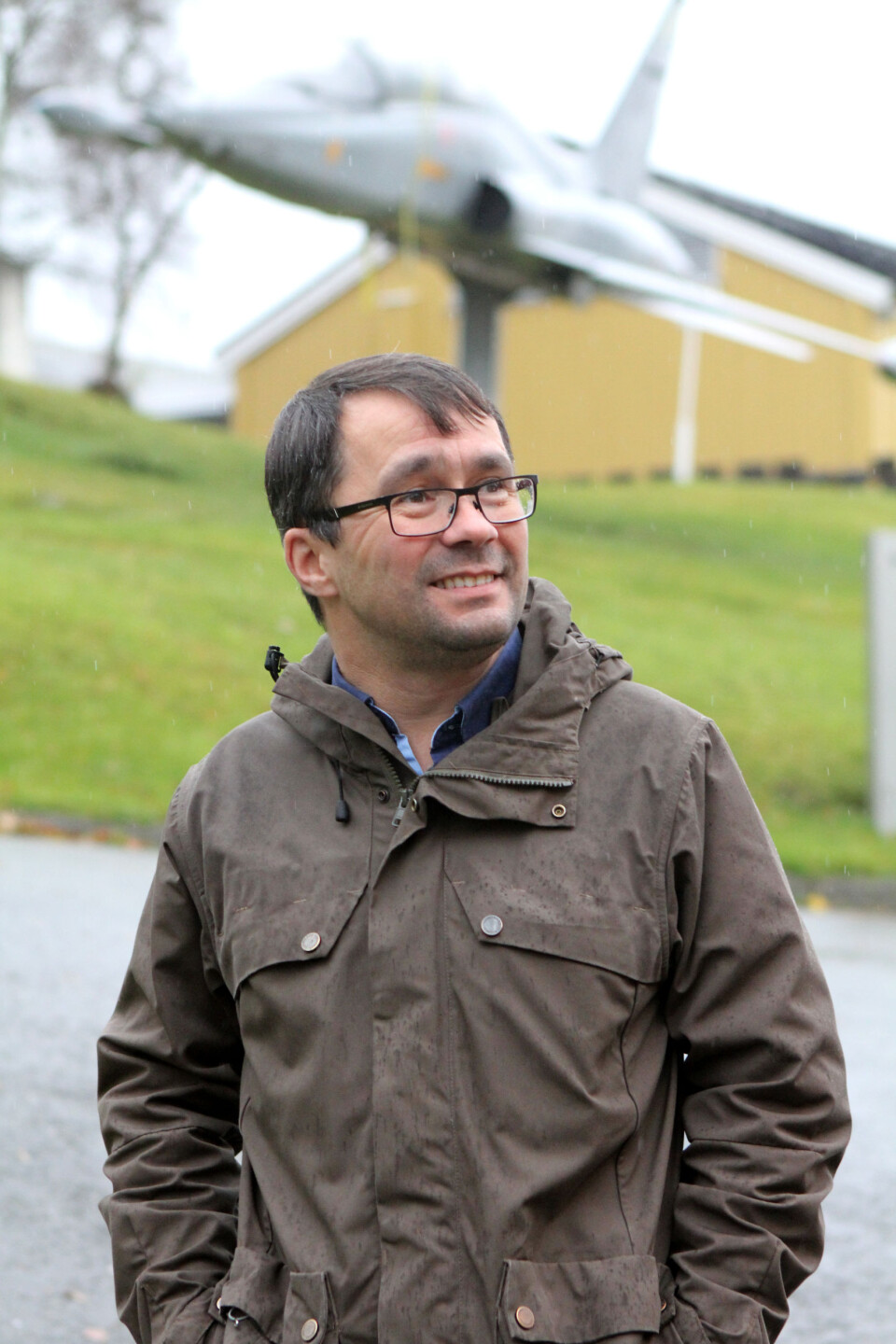
— It was after the frst revolution that Lenin decided to return to Russia and to begin organizing an uprising, he explains.
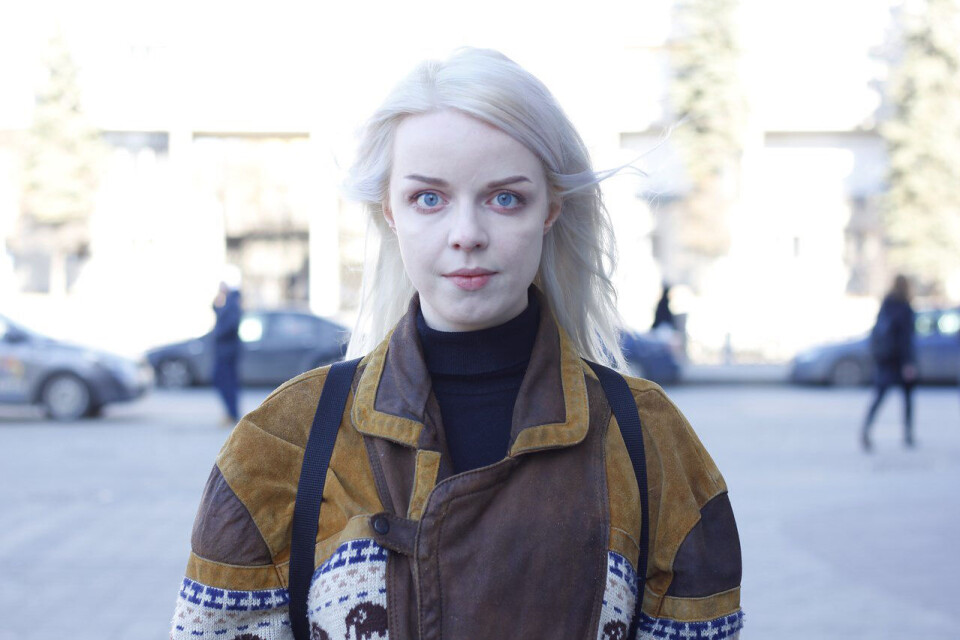
However, when Lenin frst arrived in his home country in 1917, he told his comrades that it was too early to start organizing the revolution.
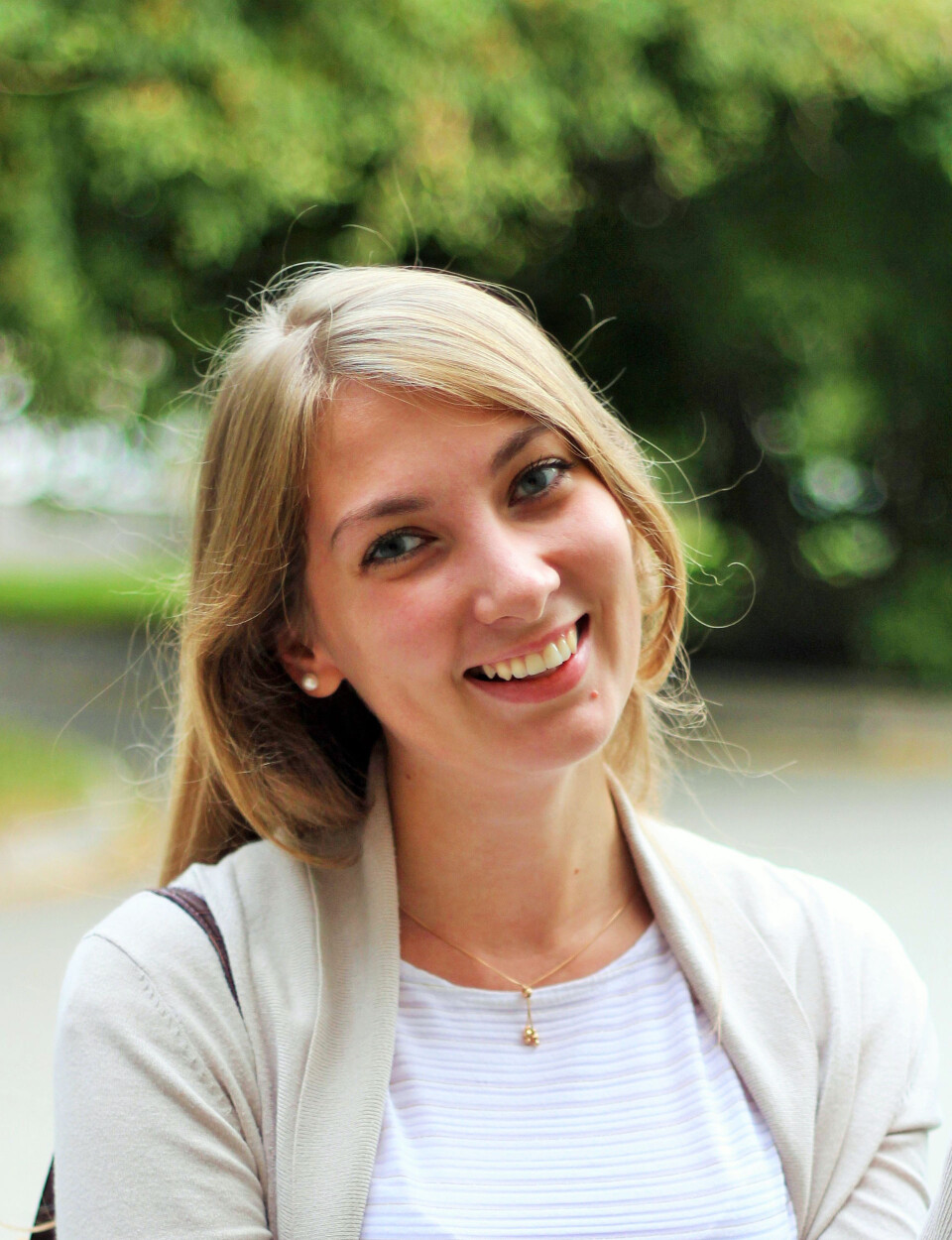
— We do not really know exactly what made him change his mind, but he started preparing for the revolt in September that year, he states.
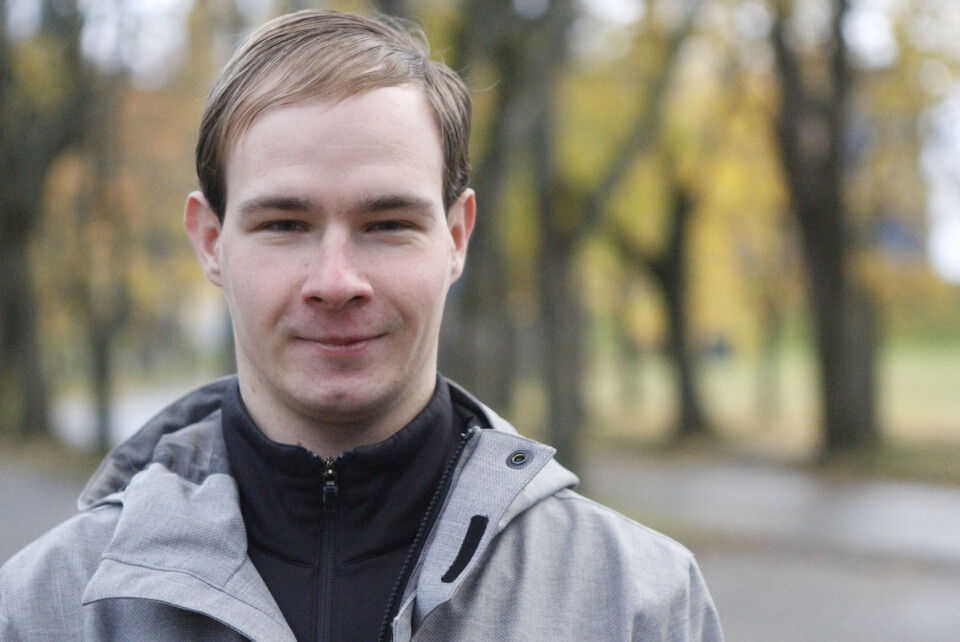
The October revolution eventually occurred on November 7 1917, creating the foundation of what would become the Soviet Union.
Soviet Union’s Fourth of July
Haga notes that back in the Soviet days, Lenin and the revolution were sacred things that you could not sully in any way. The commemoration of the October Revolution was one of the main public events of the year – almost like its own Fourth of July.
— Khrushchev broke with the country’s Stalinist past. Even back then, the October revolution was considered something you could not meddle with. The revolution was the foundation of the entire Soviet project, he says.
Haga explains that views of the revolution are more nuanced today.
— Russian nationalist are dissatisfed with the revolution because Lenin lost vast amounts of territory, and because it tore down the political institutions. It is celebrated by communists for ideological purposes. You will also fnd those who - ideological convictions set aside - will emphasize that the country eventually regained its former territories, sent people into space, and became a military force to be reckoned with.
He explains that the nostalgia for the Soviet Union is misplaced, seeing as the living standards in Russia are much higher today than at any time during in the Soviet Union.
The heritage of the Soviet era
Today, Russian President Vladimir Putin possesses an ambivalent relationship with the October Revolution. He is torn between a nostalgic memory of the country as a superpower, and not wanting to remind people of the possibility to revolt against the regime, Haga explains.
— For Putin, I think it is also about the fact that when the revolution frst came, Russia as a country was set back. It lost territory, and was subject to foreign invasion. On the other hand, he feels nostalgic about the Soviet history of stability and the restoration of its former borders.
How do you think young people perceive the revolution today?
— I wish I could give an answer to that. 26 years have passed since the Soviet Union collapsed. Young people today never experienced the old regime. Then again, those same people might remember the political and economic chaos during the 1990s, and would not want to go back to those times either.
An overdue revoluton
Philosophy graduate Valentina Paskar from Herzen University in St. Petersburg, explains how she was not educated about the nuances of the October revolution at school until the age of 13. Among her teachers were people who spoke favorably about the revolution, and those who were more critical towards it.
Paskar explains that she does not have a clear opinion about the revolution. She opposes the violence and terror that followed, but maintains the belief that political change in the country was long overdue when the revolution took place.
— Generally I would say that the revolution brought change more rapidly than anything else possibly could have. Efforts made by the new Soviet government to provide peasants and working class with a basic education were admirable in my opinion.
Her opinion is that young Russians have different motives for commemorating the revolution.
— Some of them are far-leftist, or socialist. For them, the revolution has this romantic symbolism of trying to make the world better. Others are just fans of Russian history and would probably celebrate a lot of other dates too.
She does not believe that the divided view on the revolution among the population will change much in the coming generations.
— It all depends on a person’s political stance and involvement in politics.There are many young people who do not know much about the revolution or Russian history in general.
Commemorated by communists
English and French student Julia Rychkova at Novosibirsk State Pedagogical University, says she was frst taught about the revolution by her parents.
Just like Paskar, Rychkova claims that the revolution brought some positive results, but at the same time distances herself from the bloodshed that followed.
— Still, it is impossible to deny the fact that the revolution had a decisive impact on Russia's historical development. However, I feel sorry for the high price our people paid to achieved it.
In a departure from Paskar, Rychkova claims that most of the people who mark the October revolution, do it for ideological purposes.
— Today the revolution is usually commemorated by communists. They organize meetings and distribute newspapers, but they are in minority. I assume that they are driven by ideological motivations, especially the older generation, who believe that life was much better in the Soviet times.
Rychkova believes that the younger generation of Russians know too little about the events that unfolded in the autumn of 1917, and the consequences that followed. She worries that the knowledge about the October revolution will not be transmitted to younger generations of Russians.
— Out of all events in Russian history, the most commemorated is the Second World War and for the most part I doubt young people look beyond that.
Ideas before human life
Engineering student Ivan Vakulenko at NTNU is originally from Moscow. Similarly to Paskar, he began learning about the revolution mostly through history classes at school. He too talks of teachers who taught a balanced view of the revolution, describing multiple sides of both the revolution and the civil war that followed.
All in all, Vakulenko thinks that the October revolution mostly had a positive impact on Russian society.
– In the czarist era, education was accessible for only a limited number of citizens. With the revolution, education became free of charge. The new government eventually led the politics of industrialization, which decreased the economic gap between Russia and the more developed countries.
Vakulenko believes that the future generations’ perceptions of the revolution will likely depend on certain key factors.
– By offering a balanced and independent explanation of both the causes of the revolution and the consequences that followed it, young people will see which advantages it gave our nation. But at the same time, I hope they will understand the dangers of putting power in the hands of those that value ideas more than human life.

































